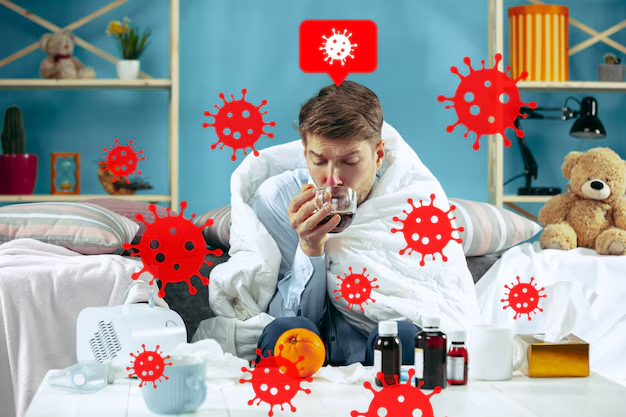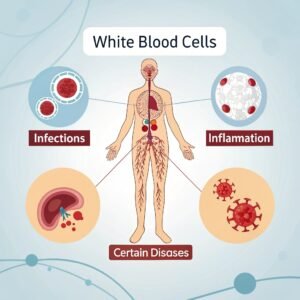“The Protective Power of Fever: Why Your Body Turns Up the Heat”
Fever is also the body’s natural defense as things are not right inside. But what is the reason behind the rise in body temperature you have when you are sick? How Fever Fights Infection.

How Fever Works: How Fever Fights Infection
A fever is when your body temperature is higher than its normal range (98.6°F or 37°C). This occurs due to your body reacting to an infection, usually due to bacteria, a virus, or other pathogen. In other words, when our immune system detects these invaders, it releases some kind of chemicals called pyrogens. These pyrogens are carried to the hypothalamus of the brain, which is the area responsible for regulating body temperature. That signals the hypothalamus, which raises your body’s “set point” — so you feel cold, and you start shivering.
Why Fever is Beneficial:
Fevers are not merely manifestations; rather, they are weapons. The immune system elevates the temperature of your body to create a hostile living situation for pathogens. In addition, several bacteria and viruses are unable to thrive or replicate as efficiently at higher temperatures. In addition, a fever enhances the ability of immune cells, such as white blood cells, to function and it stimulates these cells to become more active against an infection.
When to Be Concerned:
Although fever is a good sign that the immune system is working, it is crucial to measure how high it goes. A low-grade to moderate fever (between 100.4°F and 102°F) is mostly beneficial but high fevers (greater than 104°F) can be dangerous causing dehydration or other issues.
Conclusion: How Fever Fights Infection
When you get infected fever is a natural, protective response that is best engineered to recover your body from infections. While it indicates your immune system is hard at work, a high or prolonged fever can require medical assistance.
NOTE: – IT IS ALWAYS RECOMMENDED TO CONSULT YOUR HEALTH CARE PROFESSIONAL. ALL DATA SHARED HERE ARE FOR EDUCATIONAL PURPOSES ONLY.









